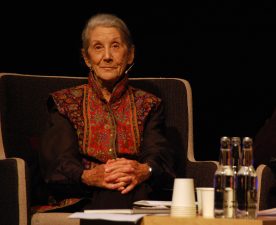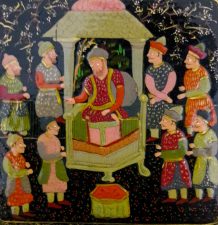How To
I’ll Still Be Afraid to Talk to You Too
How to design fictional characters onto which to project (real) emotional turmoil and process (or not process) family drama.
When a Character Returns
Edward P. Jones connected recurring characters through his short stories, providing a blueprint for one writer.
The Conjuring
I saw writing was not a remote magic but something one created—built.
Count It All What? On Titling My Novel
“The idea that a title could dissuade a reader was not something I had even considered.”
Speaking Into the World
“Poets of color, particularly black poets, are often pigeonholed.”
New York Taught Me to Be a Better Listener
“Most writers, I think, know this predicament. I have my own name for it: the curse of starting on too high a note.”
Meeting Nadine Gordimer
“I now accept that I am forever doomed to learning from my mistakes, whether in crafting a sentence, creating a book, or living out my life. That’s the writer’s burden.”
Making Art Under Military Siege
We stayed inside for days painting papier-mâché objects. Outside, Kashmir had come to a standstill.
The Reluctant Writer
“Is it ever too late to live some version of your dreams?”
The Long Dash
“Em-dashes play all types of roles—extender, interrupter, lister—but what they have in common is an inherent desire to do more, to say a little extra, to create a kind of double time.”

-138x225.jpg)


-338x225.jpg)
-339x225.jpg)



